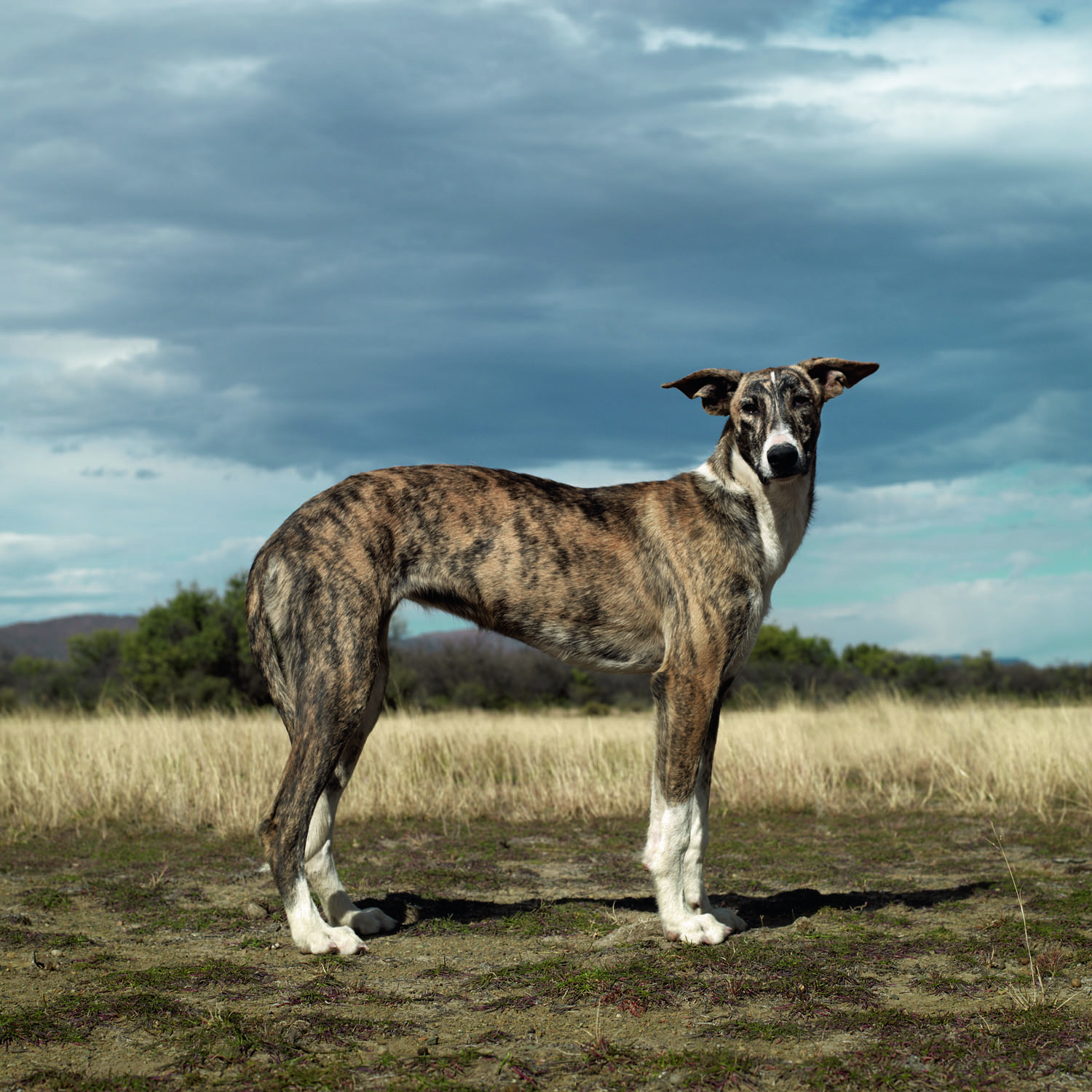
Treading carefully across the loose stones of the expansive Karoo region of South Africa, photographer Daniel Naudé approached his elusive subject with the cunning of a predator. Through wind, rain and waning light, he tracked the skittish, feral Africanis, a wild breed of dog, that runs freely across the terrain.
“Captivity and freedom were the forces that emerged after my first encounter with the Africanis dog,” said Naudé, 28, discussing some of the themes stitched into his work in Animal Farm, his newest book of photography. “This [encounter] led to many road trips, running after dogs in the veld while discovering how best to portray them.”
The book, which features images of the South Africa’s animals and their human kin, engages the viewer in a meditation on the connectedness of humankind and the animal world. Because of this connection, Naudé decided to name his project after George Orwell’s classic treatise. Like Orwell, Naudé’s prodding questions about the relationships between human and beast suggest an unsettling answer: that you never quite know which one you are.
Animal Farm started with a weekend road trip from South Africa to Mozambique in late 2006. Naudé and a friend found themselves rolling through the Northern Cape when a lanky, Africanis dog slunk across the road. The dog’s eyes met Naudé’s, and in that moment, set in motion a fascination with these illusive and inspiring animals, he said.
“I was always interested in how people lived with domesticated and livestock animals, and the way that the histories of people and animals overlapped in the landscape,” said Naudé, who spent the next five years traveling across the country, sleeping in police stations, the homes of welcoming strangers and even his car, while tracking his wild subjects.
Over time, Mr. Naude’s own life started to mimic that of the Africanis.
“Time is not your own when you are working with nature,” said Naudé, remembering the long days in search and the long nights in wait. But the freedom of travel and experience of the hunt also exposed him to region’s rich history and the people who would become part of his final project.
This expeditionary spirit is what imbued Naudé with a hunger for discovery reminiscent of past explorers. Most noticeably, he said he was motivated by British artist-explorer Samuel Daniell who set out from Cape Town in 1801 to catalogue the landscape, people and animals. In this same fashion, Animal Farm quickly became more than mere images of the Africanis because it engaged with the sociological and visual landscape of South Africa.
“Photographing the animals in these landscapes reinforced these ideas of human control, our need to rule, and our fear of the untamed,” he said. The images captured a rawness and sense of contest between man and animal, a feeling strengthened by Naude’s decision to position each dog above the horizon in his frames — a device intended to communicate power and force to the viewer.
In a country scarred by the experience of apartheid, Animal Farm suggests a desire for reconciliation. The Africanis, an animal viewed derisively for its exotic and mixed heritage, serves as symbol, emblematic of the disdain shown to the previous generations considered inferior in South Africa. Importantly, Naudé said his work resists asserting the superiority of either human or beast, but instead argues that “human and animal are equally corrupt.”
“I wanted to portray my subject as a reflection on the complexities and diversities in our country,” he said, when asked what he hoped people could take away from these photographs. “I point my lens to these animals so that we can question, challenge and finally learn to relate.”
Daniel Naudé’s ‘Animal Farm’ was published in late 2012 by Prestel.
More Must-Reads from TIME
- Donald Trump Is TIME's 2024 Person of the Year
- Why We Chose Trump as Person of the Year
- Is Intermittent Fasting Good or Bad for You?
- The 100 Must-Read Books of 2024
- The 20 Best Christmas TV Episodes
- Column: If Optimism Feels Ridiculous Now, Try Hope
- The Future of Climate Action Is Trade Policy
- Merle Bombardieri Is Helping People Make the Baby Decision
Contact us at letters@time.com